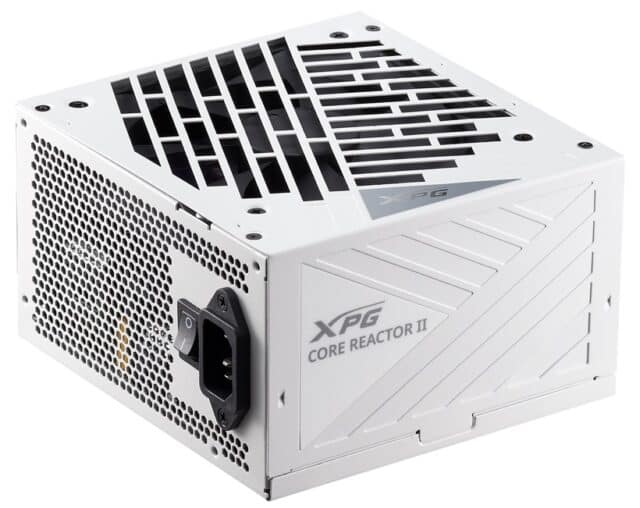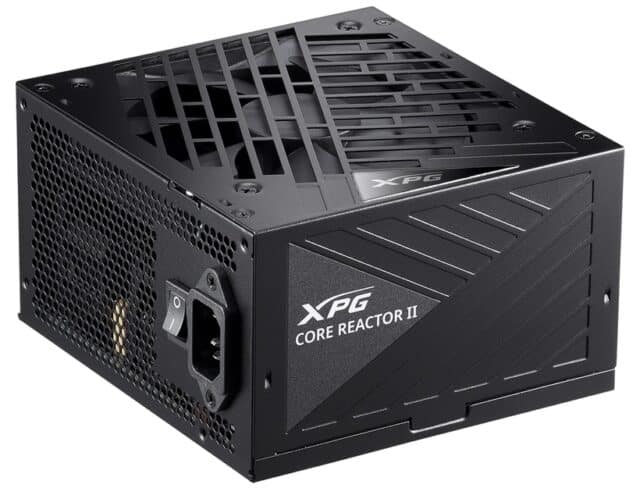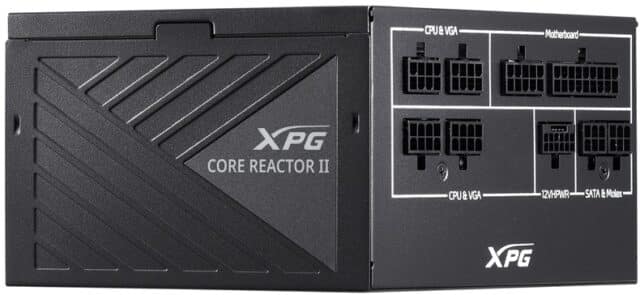

Today, ADATA unveils the XPG CORE REACTOR II series of 80 PLUS GOLD modular power supply units (PSU). A sequel to one of the most acclaimed gaming PSUs, this series embodies the same legendary build quality, compact form, and the promise of delivering consistent and efficient power. And did I mention the optimal fan curve that ensures a peaceful and quiet gaming experience?
Heeding the call from its dedicated community, XPG has incorporated direct feedback into the CORE REACTOR II. Now flaunting an updated sleek design that reflects its gaming-centric prowess, this series also introduces two robust wattage classes: 1000W and 1200W.

With a keen eye on the future, the XPG CORE REACTOR II GOLD PSU embraces and even exceeds the latest Intel ATX 3.0 specifications. Designed for power-hungry graphics cards and comprehensive systems, it promises effortless modular cable management. And for those gearing up for PCIe 5.0 applications, the 12VHPWR (12+4 Pin) connector and cable come standard right out of the box.

Don’t let the 80 PLUS Gold badge fool you; the CORE REACTOR II is nipping at the heels of Platinum performance. The stats speak for themselves: efficiency peaks at an astonishing 89% at 20% load, 90.91% at a 50% load, and an impressive 88% at full load. This is not just a PSU; it’s a testament to ADATA’s commitment to excellence. Available in both classic black and pristine white, and ranging from 650W to 1200W, there’s a fit for every gaming rig.

Unfortunately, the XPG CORE REACTOR II does not seem to be available from any online retailers yet. However, it should be available here soon. Since ADATA has not yet shared pricing, we will have to wait to find out the cost. What we do know, however, is the PSU is covered by an impressive 10-year warranty.
Please note: Some of the above links may be affiliate links, meaning we, or our writers, may receive payment if you purchase one of these items (or other items) after clicking on them.
